
April 21
1864 Birth: Max Weber, German sociologist:
Max Weber is best known as one of the leading scholars and founders of modern sociology, but Weber also accomplished much economic work in the style of the "youngest" German Historical School. Although Weber and Sombart are often lumped together as part of that generation in German economics, no two men could be less alike. The superficial, fanciful and Kaiser-worshipping Sombart was nothing like the thorough, rational and Kaiser-despising Weber. Nonetheless, while Weber was not completely immune from German nationalism, he was just not the military-imperial jingoist Sombart was. Weber firmly believed that the Herrenvolk should circumscribe their ambitions. That personal attitude was reflected in his most famous economic work, The Protestant Ethic and the Spirit of Capitalism (1905). In it, Weber argued that the presumed anti-capitalist Puritanical rhetoric of eschewing earthly acquisitiveness was actually an impetus for that very acquisitiveness. The thesis was novel and well-known. Catholicism, Weber argues, was tolerant towards the acquisition of earthly gain and winked at lavish expenditure, an idea engendered by hierarchical structure of the Church (which required struggling and jockeying for "position") as well as its own tradition of lavish expenditure (the church) and its oft-used earthly powers of forgiveness for sin. This might make one conclude that the Catholic ethic was more predisposed towards capitalism than the Protestant (as others, before and since, have argued). But no, replied Weber. It is true that the Protestant doctrines asked men to accept a humbler station and concentrate on mundane tasks and duties and, without a hierarchical church structure, there was no example of upward-mobility, acquisitiveness and expenditure. Yet it was precisely this that engendered the "work-and-save" ethic that gave rise to capitalism.

1904 Birth: Odilo Globocnik: Born in Trieste and trained as engineer; SS major general in Poland in 1942; will establish the extermination camps of Belzec, Sobibor, Treblinka and Majdanek as chief of Operation Reinhard (1942-1943). In addition, he will establish the San Sabba concentration camp and killing center in Trieste as Higher SS and Police Leader for the Adriatic Coast (1943-1945). Will be arrested by Allied troops in Austria, and commit suicide in May 1945.

1915 World War I: List Regiment: Gefreiter Adolf Hitler's 16 Reserve Infantry Regiment occupy a position, at Fromelles (pictured above in a drawing by Hitler), which is on a level field with water channels, willow trees and willow stalks, in the distance towards the enemy lines lie an insignificant wood with barbed wire entanglements. Under the direction of their defense-minded commander, Lieutenant General Gustav Scanzoni von Lichtenfels, the regiment works ceaselessly day and night in the subsequent weeks, to further fortify their position at Fromelles. [For further details, Click here.]
1916 World War I: List Regiment: Gefreiter Adolf Hitler endures trench warfare in Flanders (Artois) with 3 Company, 16 Reserve Infantry Regiment [List Regiment]. [For further details, Click here.]
1917 World War I: List Regiment: Gefreiter Adolf Hitler's 16 Reserve Infantry Regiment, 3 Company, fortify trenches near Arras. [For further details, Click here.]
1918 World War I: Various:
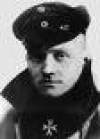
Death: The Red Baron killed in action: In the skies over Vauz sur Somme, France, Manfred von Richthofen, the notorious German flying ace known as "The Red Baron," is killed by Allied fire.
Richthofen, the son of a Prussian nobleman, switched from the German army to the Imperial Air Service in 1915. By 1916, he was terrorizing the skies over the western front in an Albatross biplane, downing 15 enemy planes by the end of the year, including one piloted by British flying ace Major Lanoe Hawker. In 1917, Richthofen surpassed all flying ace records on both sides of the western front and began using a Fokker triplane, painted entirely red in tribute to his old cavalry regiment. Although only used during the last eight months of his career, it is this aircraft that Richthofen was most commonly associated with and it led to an enduring English nickname for the German pilot—the Red Baron.
On April 21, 1918, with 80 victories under his belt, Richthofen penetrated deep into Allied territory in pursuit of a British aircraft. The Red Baron was flying too near the ground—an Australian gunner shot him through his chest, and his plane crashed into a field alongside the road from Corbie to Bray. Another account has Captain A. Roy Brown, a Canadian in the Royal Air Force, shooting him down. British troops recovered his body, and he was buried with full military honors. He was 25 years old. In a time of wooden and fabric aircraft, when 20 air victories ensured a pilot legendary status, Manfred von Richthofen downed 80 enemy aircraft. (History.com)
List Regiment: Gefreiter Adolf Hitler's 16th RIR constructs fortified works in difficult defensive positions on an active front with German assault regiments near Fountaine (Montdidier). [For further details, Click here.]
1928 Pipe-dreams: Aristide Bertrand, for the French government, outlines his proposal for the renunciation of war.
1933 Various:
Holocaust: Germany: Anti-Jewish decrees hit a record, numbering 400. Germany enacts a law this day banning all kosher rituals and prohibiting Jewish method of slaughter (Shechita). (THP)
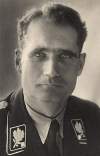
Rudolf Hess is named Director of the Political Central Committee and deputy fuehrer of the NSDAP. Hess is authorized to decide all matters concerning the direction of the Party in Hitler's name. (THP)
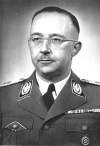
1934 Volkishness: Himmler again visits Wewelsburg Castle near Paderborn in Westphalia.
1935 Various:
Volkishness: Wewelsburg Castle becomes home to the Ahnenerbe, the ancestral heritage branch of the SS; called by some the Nazi Occult Bureau.
In part, Hitler's program was aided by superstitious beliefs that evolved into an obsession with the occult. The Ahnenerbe, an arm of the SS commissioned in the mid-1930's to research the ancestral heritage of the Aryan race, roamed far and wide to find proof that only one race was meant to rule the world and that the Nazi vision of purification and world domination was supported by mythic forces. They were to provide scientific documentation that would unite their ancient past with their destiny.
Heinrich Himmler saw the men in his army as the reincarnation of Teutonic knights and kings, in particular the knights of King Arthur's round table. He designed Wewelsburg Castle to be their Camelot, but Peter Levendra in The Unholy Alliance dubbed it that Satanic Vatican. In the quest to establish a new world order, Himmler sent his men out to find the Holy Grail and bring it back to the castle now viewed as the center of the world. The Holy Grail was the chalice from which Christ drank wine during the Last Supper. Supposedly Joseph of Arimathea confiscated it and then used it to collect blood from Christ's wound as he hung on the cross. Joseph then took the cup to England to hide it in a secret place Avalon and it became the ambition of King Arthur's knights to find it and make it the center of their enterprise.
On one floor of Wewelsburg Castle was a dark mosaic star that marked this center and over which occult rituals were performed by 12 Nazi officers to channel the spirits of the deceased kings. Whenever one of these officers died, his ashes were buried in the floor as a saintly relic. With the idea that blessings from Christ himself enveloped them, the Nazis felt justified to go on a massive killing spree against those who "contaminated" them. Theirs was a holy mission and nothing they could do in its service was wrong. What the world in retrospect deemed as one of the greatest evils perpetrated by human beings was viewed by those involved as divine path that could not be denied. Killing those they deemed inferior was necessary to achieve the ultimate glory of the purification of the planet. [For further details, Click here.]
Volkishness: Karl Maria Weisthor (K.M. Wiligut) is transferred from Munich to Berlin where he continues his work in the Chief Adjutant's office of Himmler's personal staff. Weisthor's villa is in exclusive Grunewald at Kaspar Theyss Strasse 33. Frequent social visitors included Himmler, Otto Rahn, Joachim von Leers, Edmund Kiss, Richard Anders and Friedrich Schiller. (THP)
Bulgaria: King Boris forbids all political parties.
1941 World War II: Greece surrenders to Nazi Germany.
1943 World War II: Various:
War in the Air:
On 21 April, Galland (Wilhelm-Ferdinand "Wutz" Galland) scrambled at the head of II./JG 26 to intercept an RAF formation targetting the Abbeville railroad yards. He led the attack on the bombers claiming two Ventura twin-engine bombers shot down to record his 39th and 40th victories.
Holocaust: Warsaw ghetto: From the SS and Police Fuehrer in the District of Warsaw to the Higher SS and Police Fuehrer East, Cracow:
Inasmuch as the special operation concerning the block of buildings occupied by the Army Accommodation Office had to be interrupted yesterday because of darkness, one battle group reinforced by Engineers and heavy artillery was again sent into the block of buildings, which was found to contain an enormous quantity of dug-outs and subterranean passages firing from time to time. I resolved therefore to blow up these passages which we had discovered and subsequently to set the entire block on fire. Not until the building was well aflame did screaming Jews make their appearance.
Stalin to FDR:

The behavior of the Polish Government towards the USSR of late is, in the view of the Soviet Government, completely abnormal and contrary to all rules and standards governing relations between two allied states. The anti-Soviet slander campaign launched by the German fascists in connection with the Polish officers whom they themselves murdered in the Smolensk area, in German-occupied territory, was immediately seized upon by the Sikorski Government and is being fanned in every way in the Polish press. Far from countering the infamous fascist slander against the USSR, the Sikorski Government has not found it necessary to address questions to the Soviet Government or to request information on the matter.
The Hitler authorities, having perpetrated a monstrous crime against the Polish officers, are now staging a farcical investigation, using for the purpose certain pro-fascist Polish elements picked by themselves in occupied Poland, where everything is under Hitler's heel and where no honest Pole can open his mouth. Both the Sikorski and Hitler Governments have enlisted for their 'investigation' the aid of the International Red Cross, which under a terror regime of gallows and wholesale extermination of the civil population, is forced to take part in the investigation farce directed by Hitler. It is obvious that this 'investigation,' which, moreover, is being carried out behind the Soviet Governments back, cannot enjoy the confidence of anyone with a semblance of honesty. The fact that the anti-Soviet campaign has been started simultaneously in the German and Polish press and follows identical lines is indubitable evidence of contact and collusion between Hitler - the Allies' enemy - and the Sikorski Government in this hostile campaign.
At a time when the peoples of the Soviet Union are shedding their blood in a grim struggle against Hitler Germany and bending their energies to defeat the common foe of the freedom-loving democratic countries, the Sikorski Government is striking a treacherous blow at the Soviet Union to help Hitler tyranny. These circumstances compel the Soviet Government to consider that the present Polish Government, having descended to collusion with the Hitler Government, has, in practice, severed its relations of alliance with the USSR and adopted a hostile attitude to the Soviet Union. For those reasons the Soviet Government has decided to interrupt relations with that Government. I think it necessary to inform you of the foregoing, and I trust that the US Government will appreciate the motives that necessitated this forced step on the part of the Soviet Government.
1945 World War II: Various:
War against Japan: He Shima, Okinawa, is conquered in 5 days with the loss of 5,000.
The Red Army overruns the German High Command:
Soviet forces fighting south of Berlin, at Zossen, assault the headquarters of the German High Command. The only remaining opposing "force" to the Russian invasion of Berlin are the "battle groups" of Hitler Youth, teenagers with anti-tank guns, strategically placed in parks and suburban streets. In a battle at Eggersdorf, 70 of these Hitler teens strove to fight off a Russian assault with a mere three anti-tank guns. They were bulldozed by Russian tanks and infantry.

War in the Air: The last Western air raid strikes Berlin. [See: The Last Days of the Third Reich.]
Party time: After the last Western air raid on Berlin, Eva Braun, the secretaries and the other support staff go above ground to the ruins of the Chancellery for a sort of midnight birthday party in honor of the already retired Fuehrer. A wind-up phonograph is located, but only one surviving record can be found to play on it: 'Red Roses Bring You Happiness.' With the rumble of Soviet artillery in the air, the party gets underway as the celebrants drink champagne to excess and repeatedly dance to that single solitary song. When the phone rings and then an artillery shell explodes nearby, the rest of the party also heads back into the safety of the Fuehrerbunker. Traudl Junge will later tell Gitta Sereny:
Everybody came, even Bormann and Dr. Morell. We drank champagne and danced to the accompaniment of a single record somebody had brought. People laughed hysterically. It was horrible; soon I couldn't stand it and went back down, to bed. (Read, Sereny)
Holocaust: While Hitler's entourage parties in Berlin, Himmler meets with a representative of the World Jewish Conference, Norbert Mauser. After a long discussion stretching into the wee hours of the morning, Himmler makes many concessions. He promises that no more Jews will be killed, all the camps will be handed over intact to the Allies, and the 15,000 women prisoners of Ravensbrueck will be released to the Red Cross. (Read)

Annemarie Kemp visits Magda Goebbels at her home: She will later tell Gitta Sereny:
I really think that for most of us the worst shock was to learn that Goebbels intended for his wife and their six children to die with him in the Bunker. It seemed just totally unreal, impossible. Speer said that he wouldn't have it. So a few days before Goebbels moved them all into the Bunker, he sent me to see Magda Goebbels, at her country residence near Berlin. He had been there the day before and had failed to persuade her. He thought that speaking to her as a woman I might have a better chance. He had worked out a way of getting her and the children out of Berlin by water. He had a houseboat prepared for them, quite a substantial craft, fully crewed and standing ready near the landing stage of their house on the river, in Schwanenwerder. It could have taken them off right there from their own dock. The pilot's orders were that, traveling in the night with Frau Goebbels and the children hidden below deck, he was to take it up to a tributary on the western side of the Elbe. There were enough supplies to keep them safe there if necessary for several weeks. But Frau Goebbels said no. One knew she would; one knew her closeness to Hitler. Many people thought she had always been in love with him, though Speer didn't. He had got to know her very well during her passionate love affair with Hanke; he was her confident then, as he was and would be to the end for Eva Braun. That always surprised me. I could never imagine what they found to talk about.
Magda Goebbels was a different matter. She really was an extraordinary woman, you know, very beautiful, very much of a 'lady,' at the same time an experienced woman of the world. There weren't that many around. Speer liked her a lot and I did too. I always knew she'd say no to me as she did to Speer, but the children - it was intolerable, unbearable. One had at least to try. The children came in, to say hello. I cannot tell you what nice children they were; five girls and a boy, all their names—ridiculous—starting with H. The oldest, Helga, a grave sort of child, I thought she was twelve. The boy, Helmuth, ten, seemed very shy to me, almost withdrawn. The youngest was Heidi, five, a real funny bunny. They were brought up to be very polite, you know; the girls curtsied; Helmuth bowed, rather stiffly. All firmly shook my hand and looked me straight in the eye. Except Heidi—she sort of patted my hand as she whirled by, and then made a funny production of curtsying, a sort of deep though a bit wobbly court reverence, holding her skirt out at each end; and then laughing fit to burst, with everybody laughing with her, boomps, before I could think, there she was, on my lap with her arms around me. She was just an enchanting child...How in the world was I going to talk to their mother about not killing her children? (Sereny)

Hermann Goering cleans out his vast Prussian estate, Karinhall (or, variously, Carinhall): He loads up twenty trucks and cars with files, equipment, and his remaining riches (he'd already sent off two trainloads full). Next, he calls his four pet bison to him by name and kills them with his hunting rifle, leaving instructions that the meat be distributed to the endless columns of refugees streaming away from the Soviet advance. After spending some time in the mausoleum on the grounds that hold the remains of his beloved first wife (a Swedish baroness), he leaves at the head of the line of vehicles after pushing the plunger himself and blowing Karinhall to bits. Parking the convoy in front of Luftwaffe headquarters at Werder, he drives on to the days situation conference at the Fuehrerbunker. (Read)
Last stand: Before the daily situation conference, Goering takes Wilhelm Keitel aside and pleads with him to talk Hitler into leaving Berlin for Berchtesgaden while there is still an open road. For the last ten days, all non-vital personnel have been transported to the Berchtesgaden area (the so-called Alpine Redoubt), and a fleet of planes is standing by to evacuate the big shots. Keitel will later relate that he agreed to talk to Hitler because 'my own absolutely firm belief at that time (was) that the Fuehrer and the OKW staff would...also be transferring their supreme command to Berchtesgaden.' Keitel is joined by other generals in urging the Fuehrer to abandon Berlin, but he resists the idea, saying only: 'I leave it to fate whether I die in the capital or fly to Obersalzberg at the last moment.' (Read)
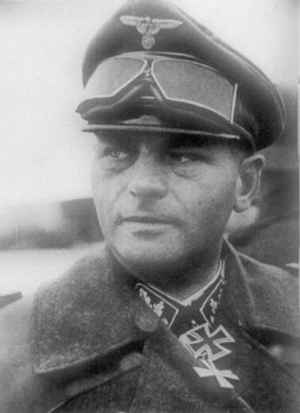
High Command: Hitler appoints Doenitz (a naval officer) commander of German ground forces in the North, and appoints Kesselring (an air officer) as commander of German ground forces in the South. General der Artillerie Helmut Wielding becomes commander of the LEVI Panzer Corps. Hitler gives further orders that German army formations under SS General Felix Steiner (above) are to immediately counter attack and disrupt the two massive Soviet pincers encircling Berlin. Steiner tries to explain to his superiors that the only offensive capability he has is two battalions of the 4th SS Police Division without any combat weapons. At this point, however, no one has the nerve to present bad news to the erratic Fuehrer, and Steiner's factual concerns are never passed up the chain of command to Hitler, who actually believes he has issued a sane and actionable command. (Clark, Read)
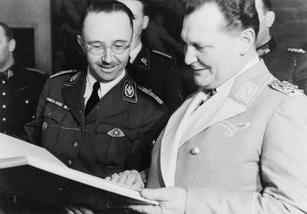
Peace plans: Before leaving the Fuehrerbunker, Goering takes Himmler aside and urges him to extend peace feelers to the West. Himmler mockingly informs him of his negotiations with Swedish Red Cross envoy Bernadotte and tells him that he is meeting with him again in the evening. He tauntingly tells Goering; 'You know, he must be the man sent by Eisenhower to negotiate,' but Goering responds coolly; 'Don't take offense, but I doubt that they'll find YOU acceptable as a negotiating partner.' 'Sorry to contradict you,' the smug SS leader replies, 'But I have incontrovertible proof that I am considered abroad to be the only person capable of maintaining order.'
Before Goering can find the words to respond to this ridiculous contention, Himmler asks him whether or not he will appoint him as Chancellor should Hitler meet his demise. Goering says that that is impossible, as the office of Chancellor is not a separate office, but bound up in the office of the Fuehrer. Himmler pushes on, perhaps in an attempt to get his rival to lose his temper: 'Herr Reich Marshal,' Himmler needles, 'if anything should prevent you from succeeding the Fuehrer—say you are eliminated—can I have the position?' Goering keeps his cool: 'My dear Himmler, we shall have to wait and see. That will depend upon circumstances. I can't for the life of me see what might prevent me from taking up office.' (Read)
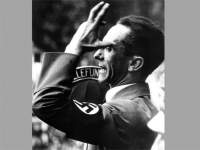
Not my fault: As the last decisive break-throughs of the Russians into Berlin continue, Goebbels opines that his own support of the war—through his effective use of propaganda—is in no way responsible for the current catastrophe:
After all, the German people did not want it otherwise. The German people by a great majority decided through a plebiscite on the withdrawal from the League of Nations and against a policy of yielding and chose, instead, a policy of courage and honor; thereby the German people themselves chose the war which they have now lost.
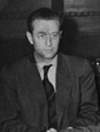
From Nazi propagandist Hans Fritzsche's testimony before the IMT:
These were the last words (above) which I heard from Dr. Goebbels and these words are untrue. I declare under oath: Dr. Goebbels had never previously given such significance to that plebiscite. Never had he given it that interpretation. The exact opposite was the case. At the time of this plebiscite, the German people were explicitly given once again a solemn assurance of the will for peace on the part of Hitler and his associates. Therefore, I am convinced that Hitler and at least some of his colleagues had deliberately lied to the people on decisive points, right from the beginning of their political career; and, something that is not so important to history, I personally felt deceived on these points, too.
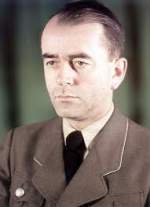
Speer records a speech at the broadcasting station at Hamburg: The recording officials, however, demand that this speech should be broadcast only after Hitler's death, which will relieve them of their oath of allegiance to him. The speech, which will never be broadcast, urges that the scorched earth policies not be implemented. (Shirer)
From Speer's testimony before the IMT:The State Secretary of the Propaganda Ministry made it possible for me on 9 April to speak briefly over the entire German radio system. All preparations were made, but at the last moment Goebbels heard about it and demanded that Hitler should approve the text of my speech. I submitted to him a very modified text. But he forbade even this very modified text.
On 21 April 1945 it was possible for me first of all to record a speech at the broadcasting station at Hamburg. This was to be broadcast as the instructions for the final phase. The recording officials, however, demanded that this speech should be broadcast only after Hitler's death, which would relieve them of their oath of allegiance to him.
Furthermore, I was in contact with the chief of staff of an army group in the East, the Army Group Vistula. We were both agreed that a fight for Berlin must not take place and that, contrary to their orders, the armies should by-pass Berlin. To begin with, this order was carried out; but later several persons empowered with special authority by Hitler were sent outside Berlin and succeeded in leading some divisions into Berlin. The original intention however that entire armies should be led into Berlin was thus not carried through. We expected that the war would last longer, for Churchill, too, prophesied at the time that the end of the war would come at the end of July 1945.

Death: Field Marshal Walter Model (AKA the 'Fuehrer's Fireman') learns that the USSR has indicted him for the deaths of 577,000 people in concentration camps in Latvia, the deportation of 175,000 others as slave labor, and other war crimes. Model tells his staffers: "Has everything been done to justify our actions in the light of history? What can there be left for a commander in defeat? In antiquity they took poison". After his attempts to seek death on the front line do not succeed, he commits suicide this day by shooting himself in the head. (Newton)
British Guardsman Edward Charlton wins the last Victoria Cross of the war for saving the lives of several men trapped in their tank during a battle in the German village of Wistedt. He is so badly wounded during his act of heroism that he dies shortly after being taken prisoner. A total of 182 Victoria Crosses—Britain's highest honor for valor—were finally awarded for World War II.
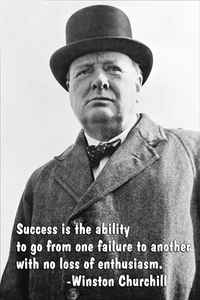
Eden (Washington) to Churchill:
I strongly share the view that Montgomery should take Lubeck. A Russian occupation of Denmark would cause us much embarrassment. The fears of Scandinavian countries would be greatly increased, and I seem to remember that one of the causes of dissension between the Russians and the Germans in their honeymoon period in 1940 arose out of certain Russian demands for control of the Kattegat. I am sure that you still have Prague in mind. It might do the Russians much good if the Americans were to occupy the Czech capital, when no doubt they would be willing to invite the Soviet Ambassador to join the United States and ourselves, in contrast to the behavior the Russians have shown to us.
1946 East Germany: The SED (Socialistic Einheitspartei Germany) is formed.
1953 McCarthyism: Roy Cohn and David Schine return to the USA:
Two of Senator Joseph McCarthy's chief aides, return to the United States after a controversial investigation of United States Information Service (USIS) posts in Europe. Upon their recommendation, thousands of books were removed from USIS libraries in several Western European countries.
Cohn and Schine had risen to fame on the coattails of Senator McCarthy as he conducted his well-publicized hunt for subversives and communists in the United States. Cohn became chief counsel to the McCarthy Senate subcommittee devoted to investigating communism in the U.S. government, and Schine, one of Cohn's close friends, became a "special consultant." In the spring of 1953, Cohn and Schine departed for a seven-nation tour of Western Europe. Their primary task was to investigate the workings of the USIS posts, foreign offices of the United States Information Agency that had recently been established to serve as propaganda centers. The posts hosted speakers, showed movies, and set up libraries containing what were considered to be representative pieces of American literature. Cohn and Schine were appalled by the authors they found on the USIS bookshelves. The two men reported that over 30,000 books in the libraries were by "pro-communist" writers and demanded their removal. The authors they targeted included crime novelist Dashiell Hammett, African-American intellectual W.E.B. Du Bois, Herman Melville, John Steinbeck, and Henry Thoreau. The State Department, which oversaw the operations of USIS, immediately ordered thousands of books removed from the libraries.
The irony of the situation did not escape commentators of the time. With the Nazi book burnings of World War II still fresh in the collective memory, many felt it was questionable that America had joined the ranks of nations that censored literature. In the fight against communism, even Moby Dick was [expendable]. (History.com)
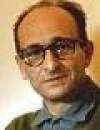
1961 Holocaust: Adolf Eichmann: The former Nazi SS officer reluctantly admits . . . that he played a part in 'liquidating' German Jews. His qualified confession comes during his trial at a special Jerusalem court. But the dull, birdlike prisoner also makes lame excuses. He was a 'little sausage' in the wartime machine, he claims, 'I was a transport officer'.
Edited by Levi Bookin (Copy editor)
levi.bookin@gmail.com



Click to join 3rdReichStudies


Please note that the list-owner and the moderator are not responsible for, and do not necessarily approve of, the random ads placed on our pages by our web server. They are, unfortunately, the price one pays for a 'free' website.
FAIR USE NOTICE: This site may contain copyrighted material the use of which has not always been specifically authorized by the copyright owner. We are making such material available in our efforts to advance understanding of historical, political, human rights, economic, democracy, scientific, environmental, and social justice issues, etc. We believe this constitutes a 'fair use' of any such copyrighted material as provided for in section 107 of the US Copyright Law. In accordance with Title 17 U.S.C. Section 107, the material on this site is distributed without profit to those who have expressed a prior interest in receiving the included information for research and educational purposes. If you wish to use copyrighted material from this site for purposes of your own that go beyond 'fair use', you must obtain permission from the copyright owner.